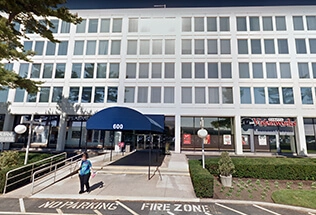When you have a legal grievance against another person, you may think your only option is a lawsuit. But lawsuits can be timely, expensive, and stressful for all involved, even if you are not at fault. Fortunately, the New York legal system allows for various forms of alternative dispute resolution (ADR) to stand in for lawsuits when alternative forums are preferred. In fact, oftentimes, these ADR methods can better serve your needs.
Below, we’ve broken down in detail (8) types of alternative dispute resolution. Additionally, you can ask any questions you may have and also receive a free case evaluation by contacting Schwartzapfel Lawyers today. Simply call us at 1-516-342-2200 or visit us online now!
What Is Alternative Dispute Resolution?
Alternative dispute resolution is a process used to settle legal differences between two or more parties. Note: Both parties must agree to alternative dispute resolution before moving forward in the process. For example, it’s not possible for one person to engage in arbitration against another without the latter party’s consent.
ADR types can vary heavily, but they all share the same broad goal: to reach a legal agreement between two or more parties without the need for litigation, which can be costly and time-consuming.
Most forms of alternative dispute resolution provide forums or neutral meeting places for parties to work toward voluntary agreements. In contrast with traditional litigation, ADR does not usually involve an acting judge to decide the case.
Why Is ADR Necessary?
ADR is necessary for various reasons that mostly concern the taxing effects of litigation, as measured by dollars and cents and stress levels and time. Suing another party, even if you have excellent evidence against them and believe that you have a good chance of seeing a successful legal action, can often be:
- Very costly in a financial sense. Even if you recover damages, they may not be as high as you anticipated, and you may have to pay related fees like attorneys’ expenses.
- Time-consuming. Even in the best of cases, when you have a lot of evidence, it can take months, if not years, for litigation to proceed from start to finish. This is especially true if your case requires an extensive discovery process, lots of testimony, etc.
Given these factors, litigation is often seen as a last resort, particularly for civil cases involving things like business disagreements. Alternative dispute resolution can provide two parties with the means to reach a binding legal agreement decision without involving the courts.
Furthermore, alternative dispute resolution can be beneficial when you need to improve communication between two parties. Because ADR takes place in neutral settings, both parties in a disagreement can meet at the proverbial table and work out their issues.
You should note, too, that there are many different types of ADR for the specific circumstances and/or needs of the involved parties.
To further clarify, let’s take a closer look at the different types of alternative dispute resolution.
Arbitration
Arbitration is the most common type of alternative dispute resolution. An arbitration meeting involves a neutral third party, called an arbitrator, who is ceded decision-making authority. The arbitrator hears the arguments and/or evidence from both sides of the dispute, then decides on a legally binding outcome.
The benefits of the arbitration process are many. Arbitration isn’t as formal as a trial, and rules of evidence are, therefore, more relaxed. Nevertheless, arbitration can result in decisions that are either binding or nonbinding. Note: Binding arbitration meetings require both parties to accept arbitrator decisions without the right to appeal, while nonbinding arbitration decisions allow either party to request a trial if they don’t approve of the final decision.
For more on this and other topics, please call Schwartzapfel Lawyers now at 1-516-342-2200. Alternatively, you can schedule your free consultation with one of our ADR pros when you visit us online today.
When Can You Use Arbitration?
Arbitration is a useful secondary legal dispute resolution method if both parties want a legally binding agreement but don’t want to go to court.
For example, arbitration can be an excellent form of resolution for civil cases where one party wants to sue the other for an apparent or perceived grievance. This can include a personal injury, an auto accident, destruction of property, and more.
Arbitration is more formal than mediation, so it can also be advantageous for cases where legal specifics matter greatly. For instance, arbitration can be valuable in a business dispute between two co-founders of a company.
Both sides must present evidence to support their claims, and legal representatives can use the formal process framework to ensure both parties are satisfied by the end.
Mediation
Mediation is another popular type of alternative dispute resolution. In mediation, another neutral third party called the mediator helps both disputing parties reach a mutually acceptable resolution.
The key difference between arbitration and mediation is that a mediator doesn’t decide the case, per se. Instead, the mediator acts as a facilitator, helping both disputing parties come to a collaborative settlement themselves.
When Can You Use Meditation?
Mediation is a useful form of ADR in many cases, including but not limited to:
- Interfamily conflicts when two family members have a legal dispute
- Minor legal disputes, such as neighborhood disputes
- Business disputes in which both business partners want to continue doing business but cannot overcome one legal hurdle
That said, the mediation process is not suitable for all cases. For instance, in circumstances where one party has much more power or control over the other, another means of legal resolution might be needed.
For more on mediation and/or other means of alternative dispute resolution, call Schwartzapfel Lawyers now at 1-516-342-2200. In turn, you will be offered a free consultation that may save you miles of headache, heartache, and financial strain down the road.
Collaborative Law
Collaborative law is a problem-solving process utilized for divorcing parties and family restructuring. It allows the divorcing partners in a couple to end their marriage and/or restructure a family without the stress and potential cost of litigation. Thus, it is used for divorce or child support cases almost exclusively.
Collaborative law requires (3) things to be successful:
- A binding pledge by both parties not to litigate their disputes through their regular court system.
- A good faith, prompt, honest, and voluntary exchange of any relevant information without requiring legal teams to go through formal discovery. In other words, both parties in the divorcing couple have to be honest and upfront about evidence.
- A commitment to work for solutions that take into account priorities between both parties and any children.
Also, please note that every lawyer in a collaborative law case has a duty to represent their client without considering the other party.
When Can You Use Collaborative Law?
You should consider using collaborative law as a form of alternative dispute resolution when you want to avoid the cost and time expenses associated with traditional divorce litigation. The collaborative law process can be very useful for amicable divorces, which are sometimes called undisputed divorces, as it can save divorcing couples time while also serving the emotional needs of the children involved.
Neutral Evaluation
Neutral evaluation (or “early neutral evaluation”) processes call upon neutral third parties with certain subject matter expertise to advise on a legal dispute. The subject matter expert then hears arguments between both sides in the legal dispute and reviews the strengths and weaknesses of both cases.
In the end, the neutral party offers a projected outcome of court processes. For example, they may project how much money and time a full lawsuit will take and offer this information to both parties. The purpose of a neutral evaluation is to promote an out-of-court settlement. In addition, neutral evaluators can offer case planning guidance and other settlement assistance with both parties’ agreement.
When Can You Use Neutral Evaluations?
Generally speaking, neutral evaluations are most useful for resolving business disputes and other legal issues in which subject matter expertise is required and in which both parties wish to avoid going through the lawsuit process.
To reiterate, neutral evaluations are particularly important and valuable for cases involving businesses, investors, and/or high financial stakes.
For instance, a business dispute involving co-founders may find a neutral evaluation to be very helpful. Neutral evaluations can also be helpful when two companies wish to sue each other, but cooler heads among both camps know that such an outcome would be financially problematic.
To learn more now, contact Schwartzapfel Lawyers and speak with one of our lead ADR attorneys at no charge. Simply dial 1-516-342-2200 and allow us the honor and privilege of assisting you with your case, answering any questions you may have, and fighting for you™ every inch of the way.
Parenting Coordination
Parenting coordination, or PC alternative dispute resolution, is explicitly child-focused. In a nutshell, a trained and experienced legal professional called a parent coordinator helps parents carry out a parenting plan. This type of ADR is usually recommended for high-conflict parents or former partners who cannot get along or agree.
It requires the prior approval of the court and both parties. The parenting coordinator then helps the parents make decisions within their appointment contract or court order. For instance, they may help one parent learn how to navigate child support obligations in the aftermath of a court order or assist another parent in following a child-support payment plan.
Parent coordination aims to expedite and streamline conflict resolution regarding children in a divorced partnership. It helps to promote healthy, safe parent-child relationships as well.
When Can You Use Parenting Coordination?
Parenting coordination as a form of ADR is very useful for divorced or separated parents who have difficulty agreeing to a child-support or parenting plan. In many divorce cases, both parents have different ideas regarding the welfare of their child, including where they should go to school, how much money each parent owes the other, and so on.
Through parenting coordination, both parents can reach an agreement that suits the needs of everyone involved quickly and comprehensively. As a result, the child gets the care they need without further delay.
Furthermore, parenting coordination enables parents to use a third party to reach an agreement instead of involving a judge and costly court appearances. The parenting coordinator in a parenting coordination meeting is more experienced with these types of cases.
Thus, both parents may feel that the decisions reached in parenting coordination meetings are better than those handed down by a judge with a lot on their plate.
Restorative Justice
Restorative justice is an ADR process intended to address a dispute or incident of harm without bringing the legal system into the mix. Generally, the criminal legal system emphasizes punishing at-fault parties by way of fines, imprisonment, and/or other punitive measures.
In contrast, restorative justice emphasizes meeting the needs of victims or those aggrieved. It also allows at-fault parties to take action and accountability as they attempt to remedy their damages.
Restorative justice can be used as a referral means of ADR from courts, especially where juveniles are involved. It can also be used in schools to reduce harmful incidents or promote a positive school culture.
When Can You Use Restorative Justice?
Typically, restorative justice is most effectively used in cases involving individuals accused of committing crimes or causing harm, in which the individual(s):
- Would be better served by not going to prison or experiencing other punitive consequences associated with the traditional legal system.
- Is young and/or this is their first registered offense.
Because of these elements, restorative justice is mostly used in youth criminal contexts.
As an example, consider the following scenario: a 17-year-old who has never committed a crime before steals a vehicle after cajoling and pressure from their friends. The victim of the theft knows that the teenager who committed the crime is ultimately good and does not want to see them punished by the legal system beyond what is necessary. To that end, they agree with the teenager’s parents to a restorative justice meeting. In this way, while the teenager still faces justice, the focus is geared more toward learning and rehabilitation as opposed to punishment.
Settlement Conferencing
Settlement conferencing is an ADR process that occurs within the framework of the judicial system. In this process, a judge or one of their representatives convenes a meeting with the parties in a dispute along with their attorneys. The objective is to negotiate and reach settlements for some or all of the outstanding issues before a trial takes place.
Settlement conferences are typically utilized in complex cases with many different issues at hand. The goal is to limit the necessity of a trial or to narrow the issues in dispute so that focused resolutions may be achieved.
To learn more now, call Schwartzapfel Lawyers at 1-516-342-2200 and take advantage of our free consultation offer. In one phone call, we’ll answer your questions and lay out viable legal options to protect you and your loved ones, as well as your financial future.
When Can You Use Settlement Conferencing?
Settlement conferencing is best utilized in upcoming complex trials or cases where there are a lot of issues on the table. Litigation already takes a lot of time and money. Some larger cases with many actors, attributes, elements, and events can take years to settle.
Through settlement conferencing, any of the smaller issues can be taken off the table or minimized before the actual trial takes place. The resulting legal action is streamlined and much faster.
Summary Jury Trials
Summary jury trials (SJTs) are adversarial dispute resolution processes in which both sides in a dispute present their cases in shortened, streamlined formats before a jury that then renders a decision.
Here, however, the jury decision is only advisory. In other words, the parties do not need to take it as legally binding (although they have the option to do so if they both find it agreeable). The summary jury trial allows parties in a dispute to see what a potential verdict might be if they were to proceed to a regular trial. In turn, this can cause two disputing parties to reach a resolution more quickly.
Note: Summary jury trials are only available in certain New York jurisdictions, not all. To see if this option is available to you, you should consult with a qualified ADR lawyer without delay.
When Can You Use Summary Jury Trials?
A summary jury trial is best pursued in cases where both parties can theoretically reach an agreement but want to hear the opinions of neutral third parties after presenting their evidence. They can be used as alternatives or secondary options after arbitration or mediation have failed.
Moreover, summary jury trials can be beneficial for corporate lawsuits or litigation. For instance, a corporate insurance officer may wish to know the likely outcome of a trial if they were to sue a competitor or business partner for a breach of conduct. In this way, a summary jury trial can assist in determining the most suitable course of action moving forward.
Why Pursue Alternative Dispute Resolution?
Alternative dispute resolution can be very beneficial, as it allows for:
- Two disputing parties to reach an agreement more quickly
- Disputing parties or couples to save money and time by avoiding the need to go to trial
- A more emotionally and mentally satisfying resolution compared to the adversarial nature of the lawsuit process
In many cases, alternative dispute resolution helps parties reach agreements without having to go to a full trial. This is more cost-effective and in many cases prevents emotional damage to the parties involved (children particularly).
As an example, consider a disputing couple seeking a fast divorce cannot reach an agreement no matter how much they discuss their issues. Rather than going through court proceedings and airing grievances in public, an alternative dispute resolution can help the couple reach a mutually beneficial agreement and go their separate ways, all while saving time and money.
Skilled legal professionals can assist with alternative dispute resolution. In point of fact, Schwarzapfel Lawyers comes equipped with 150+ years of combined experience successfully handling arbitration, mediation, and other ADR processes. For more information, contact us now either online or at 1-516-342-2200.
Is Alternative Dispute Resolution Better Than Litigation?
Alternative dispute resolution is neither better nor worse than litigation. These kinds of legal actions are different, and one may be better than another, depending on your unique legal circumstances.
Litigation can result in a massive monetary award and significant damages. As such, it may be a good course of legal action if you have sufficient evidence to prove your side of a given case. For instance, if you were severely injured in a malicious attack, litigation might be crucial for both seeking justice and recovering the monetary compensation you deserve.
However, the vast majority of civil cases are resolved outside of court through alternative dispute resolutions or monetary settlements. This is primarily due to considerations of time and money. Even in the best-case scenarios, litigation requires plenty of both, so your attorney may recommend one method of alternative dispute resolution or another, depending on the circumstances of your case and your personal needs.
As such, you should present everything you know about the situation when meeting with your attorney for the first time. Armed with this information, the right lawyer will be able to tell you:
- Whether litigation is wise given your preferred timeline, financial constraints, and the evidence collected so far.
- Whether litigation is likely to be successful. Note: Your attorney may have handled a similar case to yours in the recent past, so take this advice to heart.
- Whether alternative dispute resolution would likely prove the better path forward in terms of time, money, and general peace of mind.
Contact Schwartzapfel Lawyers Today
As you can see, there are manytypes of alternative dispute resolutionthat can be used to resolve your legal issues. If you need help choosing the right ADR method for your situation and needs, or if you want to know more about ADR in general, Schwartzapfel Lawyers can help.
As experienced New York attorneys, we’ve helped individuals just like you successfully reach alternative means of legal resolution to avoid the time-intensive and costly trial process. We can assist with personal injury cases, workers’ compensation disputes, and so much more. Contact Schwartzapfel Lawyers today at 1-516-342-2200 for a free case evaluation!
But you shouldn’t wait, as your window to reach a satisfactory legal resolution may soon close forever. To keep that from happening, act now and recover the damages you are entitled to by having Schwartzapfel Lawyers fight – and win – for you!
DISCLAIMER: Nothing on this page should be considered legal advice. You should seek the appropriate counsel your situation requires. For more information, call 1-516-342-2200 now!
Sources:
Schwartzapfel Lawyers, P.C. | Fighting For You™™
Alternative Dispute Resolution | Wex | US Law
Alternative Dispute Resolution | For the Public | NYC Bar
Summary Jury Trial Project | NYCOURTS.GOV
Guidelines for the practice of parenting coordination | APA.org
















